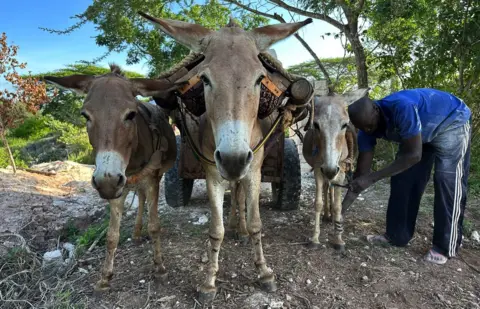By The Arusha News Reporters
Travel by sea, land and air should be safe, comfortable and reliable — yet travelling by bus in parts of southern and northern Tanzania increasingly resembles gambling with one’s life.
A recent spate of horrific road accidents, especially in Kilimanjaro Region, has reignited national outrage. More than 60 people have died and over 100 injured in just the last few months. Some of the survivors now live with permanent disabilities that have transformed once-independent individuals into lifelong dependants — devastating family structures and aggravating poverty.
One of the deadliest accidents occurred on June 28, 2025 in Same District, where a gruesome collision between a mini-bus and an oncoming bus killed at least 42 people. The impact was so severe that most victims were burned beyond recognition, with only DNA testing able to confirm their identities. Among the dead were 30 members of the extended family of a former Member of Parliament (MP) for Same, who were en route to a wedding.
“This is the most horrific accident I have seen in my 20 years of service,” said a nurse at Kilimanjaro Christian Medical Centre (KCMC), speaking on condition of anonymity. “Entire families have been wiped out. We are doing all we can for the survivors.”
Preliminary police investigations attributed the cause of the crash to a tyre blowout, which forced the incoming vehicle into the path of the mini-bus, leading to a head-on collision. Both vehicles burst into flames.
President Samia Suluhu Hassan expressed her condolences and outrage soon after the incident. “It is time for bold measures,” she said. “We cannot allow accidents to become the norm.” While commissioning new police officers in Dar es Salaam recently, she revealed that from January to April this year 1,322 accidents were recorded, killing 1,275 people.
“The real cost of road accidents should never be viewed solely through the body count of the dead or injured,” said Dr Gerson Fumbuka of the East African Community (EAC) Think Tank. “We must consider the long-term losses endured by families and the nation — long after the headlines fade.”
Dr Fumbuka called for an urgent review of the legal framework establishing the Land Transport Regulatory Authority (LATRA) and for greater oversight of passenger vehicles. He acknowledged the role of technologies such as GPS trackers and speed governors, but warned they are insufficient on their own.
“It all begins with mindset,” he said. “Bus owners must grasp the weight of their responsibility. Drivers and pedestrians must embrace road safety as part of their culture. Blaming every tragedy on fate or God is immature and irresponsible.”
Some stakeholders pointed to systemic failures, particularly corruption. “Highway traffic police are enabling these disasters,” one observer claimed. “If police officers didn’t turn a blind eye, there is no way unroadworthy vehicles with worn-out tyres would be allowed on public roads.”
The Same District crash followed another tragedy in Mwanga District on April 3, 2025 – where eight people died and 41 were injured. In October last year, 14 lives were lost in Hai District when a speeding lorry collided with a passenger vehicle. In recent months, road deaths have claimed the lives of a Bishop of the Evangelical Lutheran Church in Tanzania (ELCT) and a former Regional Administrative Secretary (RAS) for Kilimanjaro Region.
These tragedies have given the Arusha-Same corridor — a key artery to Dar es Salaam and Tanga — a notorious reputation for fatal accidents. Transport veteran Walter Maeda urged drivers to exercise more responsibility. “No one should get behind the wheel of a defective vehicle,” he said.
Tourism operators are also expressing concern. “We’ve already received calls from worried clients,” said Esther Ndunguru, an Arusha-based tour operator. “We need strong reassurance that our roads are safe.” The Moshi-Arusha highway is the main access route to Mount Kilimanjaro, the Serengeti and Ngorongoro Crater.
As families bury their loved ones, communities in Arusha, Moshi and Same are united in grief — with a collective plea for reform, accountability and safer roads. The question now remains: Will the nation act before the next tragedy strikes?



